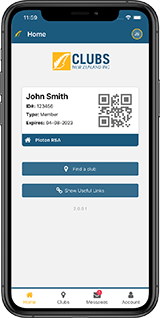Using Failure as a tool for Growth
17 June 2021
When it comes to failure, the age-old adage claims that "what doesn't kill you makes you stronger".
Though this may be true, the fear of not achieving your goals can cause anxiety and inhibit future progress. The self-doubt and stress activates your brain's reactive neural networks, reducing your problem-solving capacity and emotional regulation.
One way to challenge this negative train of though is to adopt a growth mindset.
Mindset theory, developed by Stanford-based Professor Carol Dweck, focuses on the belief systems that drive failure, learning and intelligence. The terms "fixed mindset" and "growth mindset" differentiate individuals who see failure as a reason to give up from those who view it as a learning opportunity.
To transition your perspective from negative to positive, here are five handy tips used by high-performing businesses to use failure as a tool for growth:
1. Create the space for teams to explore new opportunities
Creating a diverse portfolio of income streams doesn't happen by accident. It takes a lot of hard work and many tough conversations. Give your staff time and space to explore new ideas without fear of failure.
2. Acknowledge what wasn't working and get curious as to why
Following the COVID-19 pandemic, many clubs revisited their approach to day-to-day operations. Define what needs to change and why. Without understanding why something usn't working, how can you be sure you're putting the correct steps in place to improve?
3. Be aware of fixed mindsets in the boardroom
Change can be scary. Feeling nervous, frozen or afraid to take risks is normal, especially when your decision making will impact your employees and wider community. Executive who already posses a growth mindset should use their knowledge to guide their more risk-adverse counterparts.
4. Get comfortable with trying new things
At some point, failure is inevitable. When it happens, don't fall back into the trappings of a fixed mindset. Reframe any mistakes or perceived failings as an opportunity for growth and remember the lessons you learnt moving forward.
5. Experiment before implementing change
Taking an experimental approach allows you to manage the risks associated with your ideas before fully implementing them. Test your ideas internally and early before rolling them out to market.
(SOURCE: Reyna Mendes, ClubsNSW Learning and Development Manager, ClubLIFE June 2021)

